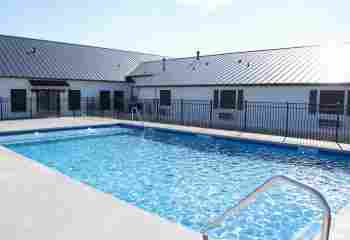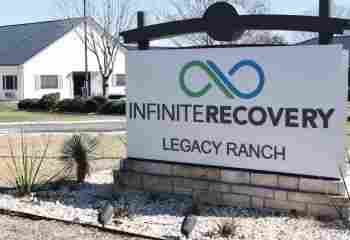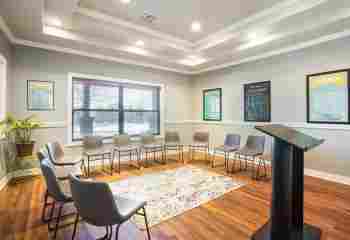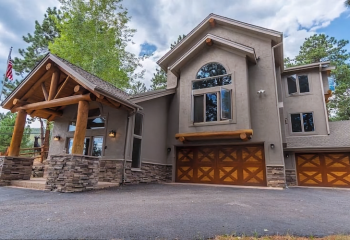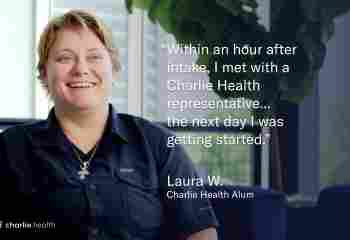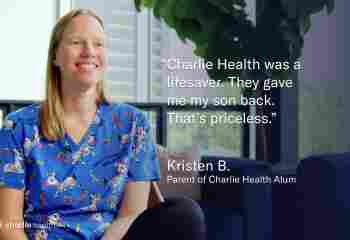Synthetic drugs are man-made drugs chemically similar to plant-based drugs like heroin or cocaine. Taking a synthetic drug often has the same effects of the drug it’s mimicking. For example, a synthetic opioid typically produces the same mental and physical effects as heroin.
Some synthetic drugs have been designed to be stronger than the natural drug they mimic. Fentanyl, for example, was designed as a synthetic opioid, and is 100 times stronger than morphine.
Many synthetic drugs have been designed to avoid legislation—if their chemical compound is different from an illegal drug, technically, they don’t qualify as a controlled substance (even if they produce the same effects). Some drug creators can get away with this for months or even years due to the amount of time it takes to effectively add all synthetic drugs to a nation’s list of controlled substances.
Certain synthetic drugs are more addictive than the natural drug they mimic, and can be easier and cheaper to get, making it even likelier to develop an addiction to them.
Examples and How They’re Used
Synthetic drug examples include ZaZa (synthetic marijuana), bath salts (synthetic stimulant), N-bomb and PCP/angel dust (synthetic hallucinogens), and Legal E (synthetic stimulant similar to ecstasy). A synthetic variation of nearly every illegal drug exists.
Depending on the synthetic drug, you could smoke, snort, inject, or eat the substance to experience the effects. As with plant-based drugs, people often use synthetic drugs to enhance experiences or to cope with trauma and negative emotions.
Signs And Symptoms of Synthetic Drug Addiction
Synthetic drug addiction causes a dependence on it to stay well. For example, if you’re addicted to synthetic opioids and stop using them, you’ll soon need to take more just to avoid the arduous withdrawals. Addiction also includes cravings. Even if you don’t feel sick from withdrawals, you may still feel a deep need, or craving, for the drug you take.
The physical symptoms of synthetic drug addiction depend on which drug you take. Some signs of synthetic marijuana use, for example, include bloodshot eyes and a powerful sense of relaxation. Other substances can present more dangerous and unpredictable symptoms.
Stimulants like meth and cocaine could cause wild and erratic symptoms. The sedative effects of depressants might be harder to notice, but the drugs themselves are just as damaging.
How to Tell if Someone Has a Synthetic Drug Addiction
You can look for any of these signs if you suspect someone you know has a synthetic drug addiction:
- Secretive behaviors and habits.
- A new friend group comes into their life.
- Physical symptoms of use, like hair and skin damage, exhaustion, needle marks, or tooth decay.
- Heightened reactivity and strong startle reactions.
- Frequently stealing or borrowing money without paying it back.
- Loss of their home, car, or other possessions.
- Job loss due to uncharacteristically poor performance.
If you’re comfortable, you can be straightforward and ask if your loved one has an addiction. Stay non-judgemental if you take this route. Though you don’t support their addiction, you’ll want to make it clear you do support them and their recovery. Staying non-judgemental and non-condemning can open them up to the idea of treatment.
What Are The Long-Term Effects of Synthetic Drug Addiction?
Synthetic drug addiction can have a destructive and lasting impact on your brain, physical health, and overall life. The potency of synthetic drugs also puts you at risk of an overdose, especially because less is known about the effects of synthetic drugs and their toxicity.
Synthetic drug addiction can also affect your relationships and social life. You may lose friendships and ties with your family if your addiction has unintentionally become more important.
How Can I Find Support?
- Rehabs for Synthetic Drug Addiction
- Telehealth Provider
- Talk to a supportive friend or family member
- Talk to your primary care physician
Do Rehabs Treat Synthetic Drug Addiction?
Yes, many centers treat synthetic drug addiction. Many rehab centers also treat co-occurring mental health disorders, like depression, alongside substance use disorders. Synthetic drug addiction rehab has varying levels of treatment. These include:
- Residential treatment lasts 28+ days. Here, you’ll likely undergo detox (if needed) and engage in daily treatments and therapies.
- Day treatment, or partial hospitalization, lasts a few months. You’ll live at home but attend treatment 5-7 days a week, for about 40 hours a week.
- Intensive outpatient programs (IOPs) last a few months. You’ll live at home and go to treatment 3-5 days a week, for a few hours a day. Some IOPs have day and evening programs for more flexibility.
- Sober living homes keep you connected to others in sobriety. You live in these safe, structured homes as you adjust to life outside treatment. You can attend day treatment and IOP in sober living.
- Outpatient programs can last months or years. In outpatient, you’ll go to treatment once or twice a week for individual and group therapy.
In each level of care, you’ll likely receive 1-1 therapy with a therapist and participate in group therapy. The exact type of therapies used will vary based on your symptoms, medical history, age, and more. But you can expect to engage in one or more types of evidence-based therapy throughout your treatment.
What Therapies Are Used to Treat Synthetic Drug Addiction?
- Cognitive Behavioral Therapy (CBT): a form of psychotherapy that encourages you to challenge and change unhelpful thoughts, feelings, and behaviors.
- Contingency Management (CM): a behavioral therapy that rewards/reinforces sobriety through vouchers, giftcards, or money received after periods of continuous sobriety. CM can be especially helpful for preventing relapses.
- Interpersonal Therapy (IPT): a short-term form of psychotherapy that helps you identify and address interpersonal issues that may contribute to your drug use.
- Dialectical Behavioral Therapy (DBT): an approach that combines elements of CBT and mindfulness to help you become more aware of your thoughts, feelings, and behaviors.
- Psychotherapy: a form of counseling that helps you identify underlying issues that may contribute to your drug use.
- Medication: Anti-craving medications can help you detox and maintain your sobriety after treatment.
Therapy for synthetic drug addiction targets the thoughts and behaviors that led you to addiction, as well as relapse prevention. You'll learn practical ways to maintain recovery and more wellness-focused strategies, like proper nutrition and mindfulness. You’ll likely meet in peer support groups too, like narcotics anonymous (NA), which you can attend for the rest of your life.
Medications for Synthetic Drug Addiction
Certain medications can ease your withdrawal symptoms and reinforce your sobriety. Some medications specifically help with opioid addiction, while others can have more broad effects.
Finding the right fit may take time. Your prescriber will carefully choose the right medication for you and your situation. Depending on your treatment goals and history, you may take medications for months or even years.
When talking to your doctor about medications, keep these questions in mind:
- How long will it take for me to feel the medication’s effects?
- Will this medication interact with any supplements or other medications I’m taking?
- What time of day should I take this medication?
- What will the side effects look like?
- What happens if I relapse while on this medication?
- Can I take this on an empty stomach or do I need to eat beforehand?
- Does this medication have a Black Box/Boxed warning for an increased risk of suicide? (Your doctor will most likely bring this up right away, but it’s good to check.)
- Could this prescription become addictive?
- What will withdrawals look like if we decide to stop this medication and/or try another?
Psychiatrists and therapists often use a combination of different therapies depending on the individual patient’s needs and unique presentation of addiction. Psychiatrists may also prescribe medication as an adjunct to therapy. Ultimately, the goal of treatment is to help the patient to develop healthy coping skills and strategies to manage synthetic drug addiction.
Is It Possible to Relapse With Synthetic Drug Addiction?
Relapsing on synthetic drugs is possible. You can seek professional treatment to understand and treat the root causes of addiction to prevent future relapses. Most synthetic drug rehab programs include relapse prevention planning, aftercare, and connections to additional resources, like support groups.
A recurrence doesn’t mean your treatment failed. It just means you need additional help to get back into healing.
Can I Use The Family and Medical Leave Act (FMLA) for Synthetic Drug Addiction Treatment in The U.S.?
If you’ve been clinically diagnosed with synthetic drug addiction, then you can receive Family and Medical Leave Act support. The FMLA ensures that you do not lose your job when taking necessary time (up to 12 weeks) off to heal from a serious health condition. This act also guarantees that you retain the same terms of employment that you originally had for your job.
What’s provided in your FMLA may vary and has requirements for eligibility. Talk with your Human Resources (HR) department at work or look online for more information on FMLAs.
How Can You Help Someone With a Synthetic Drug Addiction?
The decision to get treatment isn’t yours to make. Your loved one must have that desire themselves. But you can support them along the way.
One way you can help is by verbally offering your support, a listening ear, and compassion. For example, your loved one may ask you to help them find a good treatment center. You can work through that process together. Your support may give them the final push they need to get help.
How to Talk to Your Doctor About Synthetic Drug Addiction
You can keep a few key points in mind when you decide to talk to your doctor. Be sure to tell them what you’re taking—even if it’s an illegal drug. Doctors are bound by confidentiality laws, and would rather help you than get you into trouble. At your appointment,
- Tell them how much of a drug (or 2+ drugs) you take.
- Tell them how your dose has increased over time, if it has.
- Describe what happens if you don’t regularly use drugs.
- Explain how drug use affects your family life, work life, and your overall health.
- Point out any physical issues you think connect to synthetic drug use, like poor oral health, skin lesions, or sudden weight loss.
After describing your situation and symptoms, your doctor will likely suggest the next steps in treatment. This might include detox, residential care, or outpatient care. You’ll decide what’s best for you together.




























